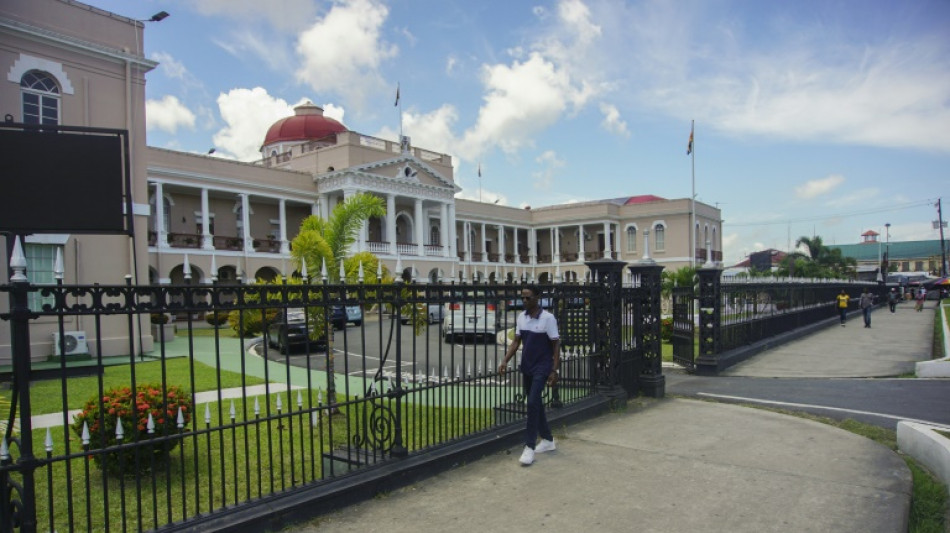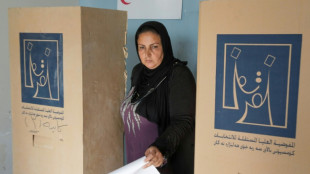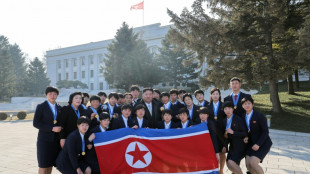
Five things to know about Guyana

Here are five key facts about the English-speaking South American country Guyana, where legislative elections will be held on September 1.
- English-speaking in South America -
A former Dutch and British colony, Guyana is the only English-speaking country in South America and a member of the British Commonwealth.
Initially occupied by the Netherlands, the country, which is about the size of Kansas, was ceded to Britain in the 19th century.
After the abolition of slavery, the British brought labourers from India to work on sugar cane plantations there.
Today, the population of over 800,000 remains divided ethnically between communities of African and Indian descent.
- Slavery heirs –
In 2023, Guyana was the site of high-profile protests against heirs of slaveowners who had come to the country on an "apology tour".
On the airport tarmac in the capital Georgetown, descendants of John Gladstone, one of the largest slaveholders in the parts of the Caribbean colonized by Britain, were greeted by placards reading: "The Gladstones are murderers".
Guyanese descendants of African slaves had come out in force, calling on the Gladstone heirs to do more than say sorry, like follow up with reparations.
- A new Qatar? -
In 2015, petroleum giant ExxonMobil discovered huge deposits of crude oil that gave Guyana the largest reserves per capita in the world.
Currently the country produces just over 600,000 barrels of oil per day, but it is expected to more than double its production by 2030.
Thanks to this windfall, Guyana had the world's highest growth rate in 2024, estimated at 43.6 percent.
Nevertheless, poverty in the country remains high.
- Ancient territorial dispute -
The discovery of oil has been a source of tension with neighboring Venezuela, which claims a huge swath of territory known as the Essequibo.
The 160,000-square-kilometer (62,000-square-mile) region has been administered by Guyana since a ruling in 1899 favouring the then-British colony.
Venezuela has never accepted this, claiming the region has historically been considered its territory since 1777, when it was part of the Spanish empire.
The matter is before the International Court of Justice in The Hague.
- Deadly cult –
In one of the most dramatic mass murder-suicides of modern history, 914 adults and children from a US cult died in the Guyana jungle on November 18, 1978.
They were led to their death by a charismatic US preacher, Jim Jones, who coerced members of his People's Temple sect into committing "revolutionary suicide", urging parents to give their children poison, while others were shot trying to flee or forced to drink the deadly liquid.
Jones, who had moved his followers to Guyana from San Francisco to avoid a crackdown on the cult by US authorities, was found dead with a bullet to his head. It was never determined if he had died by suicide or was shot.
K.Im--SG

 London
London

 Manchester
Manchester
 Glasgow
Glasgow
 Dublin
Dublin
 Belfast
Belfast
 Washington
Washington
 Denver
Denver
 Atlanta
Atlanta
 Dallas
Dallas
 Houston Texas
Houston Texas
 New Orleans
New Orleans
 El Paso
El Paso
 Phoenix
Phoenix
 Los Angeles
Los Angeles



